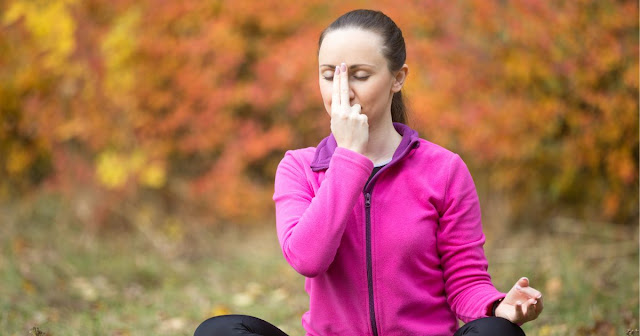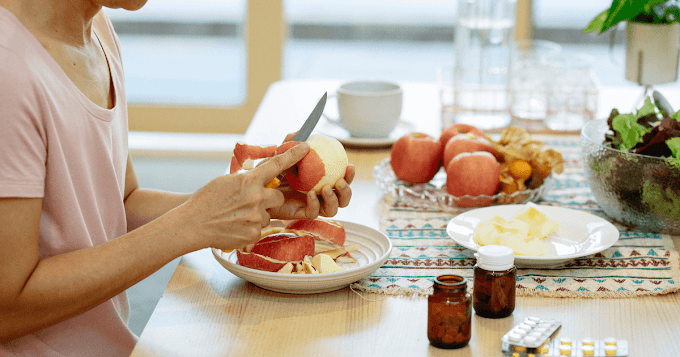Hiccup(hichki)
Hiccups are an involuntary contraction of the diaphragm muscle that causes a sudden intake of breath followed by a closing of the vocal cords, resulting in a 'hic' sound. While hiccups are usually harmless and self limited, they can be annoying and uncomfortable. In this article, we'll discuss the causes, treatment and home remedies for hiccups (hichki).Causes of Hiccups
- Eating or drinking too quickly, causing air to be swallowed.
- Overeating, which can distend the stomach and irritate the diaphragm.
- Consuming carbonated beverages, which can cause excess gas and lead to hiccups.
- Smoking or chewing gum, which can cause air to be swallowed.
- Emotional stress or excitement, which can cause rapid breathing and hiccups.
- Certain medications, such as steroids, tranquilizers, and anesthesia which can affect the diaphragm muscle.
Treatment of Hiccups
Most hiccups go away on their own without any treatment. However, if hiccups persist for longer than a few hours or interfere with daily activities, there are several treatment options available:Medications -
Breathing techniques -
Nerve stimulation -
Surgical procedures -
Home Remedies for Hiccups
There are several home remedies that can be used to stop hiccups quickly and effectively:Drinking water -
Swallowing granulated sugar -
Holding your breath -
Gargling with ice water -
Drinking vinegar -
Prevention of Hiccups
While hiccups cannot always be prevented, there are several steps you can take to reduce the likelihood of experiencing hiccups:Eat and drink slowly -
Avoid overeating -
Avoid carbonated beverages -
Manage stress -
Avoid smoking and chewing gum -
Another unique point about hiccups is that they can be a sign of overstimulation of the diaphragm, the muscle that separate the chest cavity from the abdominal cavity and play key role in breathing. This overstimulation can be caused by a number of factors, including eating too much or too quickly, drinking alcohol or even sudden changes in temperature. In rare cases, hiccup (hichki) can be a sign of a more serious underlying condition, such as a brain tumor or stroke.
While there are many home remedies that can be effective in stopping hiccups, some of them may actually be harmful. For example, some people recommend holding your breath or breathing into a paper bag to stop hiccups. While these remedies may work for some people, they can also be dangerous for others, particularly those with underlying respiratory conditions like asthma or COPD. It's always important to consult with a healthcare professional before trying any new remedies or treatments for hiccups (hichki).
Hiccups are a fascinating and unique phenomenon that can be both amusing and frustrating at the same time. While they are typically harmless and can be treated with simple remedies, it's important to seek medical attention if hiccup persist for a prolonged period of time or are accompanied by other symptoms. By understanding the causes of hiccups (hichki) and taking steps to prevent them, we can reduce the likelihood of experiencing hiccups and improve our overall health and well-being.
Ways To Get Rid Of Hiccups
Hiccups are a common and often annoying phenomenon that most people have experienced at some point. They occur when the diaphragm, the muscle that controls breathing, suddenly contracts involuntarily. While hiccups are usually harmless and go away on their own after a few minutes, they can be uncomfortable and disrupt our daily activities. Fortunately, there are several ways to get rid of hiccups (hichki) quickly and effectively. Here are some effective remedies for getting rid of hiccups:Drink Water
Drinking a glass of water is one of the simplest and most effective ways to get rid of hiccups. Sipping water slowly helps to soothe the nerves that control the diaphragm, which can help stop hiccups.Hold Your Breath
Holding your breath for a few seconds can help to reset the diaphragm and stop hiccups. Take a deep breath, hold it for 10-20 seconds, then exhale slowly.Swallow Granulated Sugar
Swallowing a teaspoon of granulated sugar can help to stimulate the vagus nerve, which can help to stop hiccups. Simply swallow a teaspoon of sugar and wait for it to dissolve in your mouth.Breathe into a Paper Bag
Breathing into a paper bag can help to increase carbon dioxide levels in the body, which can help to stop hiccups. Simply breathe in and out of a small paper bag for a few minutes.Pull Your Knees to Your Chest
Sitting down and pulling your knees up to your chest can help to compress the diaphragm, which can help to stop hiccups. Hold this position for a few minutes until the hiccups stop.Gargle with Water
Gargling with water can help to stimulate the muscles in the back of the throat, which can help to stop hiccups. Simply take a mouthful of water, tilt your head back, and gargle for a few seconds.Use Pressure Points
Applying pressure to certain pressure points can help to stimulate the vagus nerve and stop hiccups. Try pressing gently on the soft spot between your upper lip and nose or on the spot between your collarbone and jawbone.Traditional Remedies for Hiccup
Hiccups have been a common ailment throughout history and people have developed many traditional remedies for this condition. Here are some traditional remedies for hiccups that have been used for centuries:Scaring
One of the most commonly known traditional remedies for hiccups is to startle the person who is experiencing them. This can be done by jumping out and yelling "Boo!" or making a loud noise suddenly. The idea is to startle the person and interrupt the hiccups.Swallowing Water Upside Down
Drinking water upside down is another traditional remedy for hiccups. The person experiencing the hiccups should lean forward and drink water from the opposite side of the glass, so that the water is flowing up towards the roof of their mouth. This can be a tricky manoeuvre, so it's important to be careful not to choke.Breathing into a Bag
Breathing into a paper bag is another traditional remedy for hiccups. The person experiencing the hiccups should breathe in and out of a small paper bag for a few minutes. The bag will fill up with the person's exhaled breath, which is higher in carbon dioxide. Breathing in this higher concentration of carbon dioxide can help to stop the hiccups (hichki).Drinking Vinegar
Drinking vinegar is another traditional remedy for hiccup. The person experiencing the hiccups should drink a tablespoon of vinegar, which can help to stimulate the diaphragm and stop the hiccups.Eating a Spoonful of Peanut Butter
Eating a spoonful of peanut butter is another traditional remedy for hiccups. The sticky texture of the peanut butter can help to interrupt the hiccups and stop them.Massaging the Carotid Artery
Massaging the carotid artery is another traditional remedy for hiccups. The person experiencing the hiccups should gently massage the large artery on either side of their neck. This can help to stimulate the vagus nerve, which can help to stop the hiccups.While these traditional remedies for hiccups have been used for centuries, it's important to note that some of them may not be safe or effective. It's always a good idea to consult with a healthcare professional before trying any new remedies or treatments for hiccups (hichki).
Some of these traditional remedies may not be suitable for everyone. For example, drinking vinegar or eating peanut butter may not be recommended for people with certain medical conditions, such as acid reflux or allergies. It's important to always take any allergies or medical conditions into consideration before trying any new remedy.
Moreover, some of these traditional remedies may not be supported by scientific evidence. While some of these remedies may work for some people, it's important to remember that everyone's body reacts differently, and what works for one person may not work for another. It's also important to note that hiccups can be a symptom of an underlying medical condition, so if hiccups persist for a prolonged period of time or are accompanied by other symptoms, it's important to seek medical attention.
Chinese Treatment for hiccup
In Chinese medicine, hiccups are believed to be caused by a disharmony in the body's energy or qi. Traditional Chinese medicine (TCM) offers several methods for treating hiccups that focus on restoring balance and harmony in the body. Here are some common Chinese methods for treating hiccups:Acupressure
Acupressure is a technique that involves applying pressure to specific points on the body to relieve pain and other symptoms. There are several acupressure points that can be used to treat hiccups, including the point on the wrist that is commonly used to treat nausea and vomiting. Applying pressure to this point for a few minutes may help to relieve hiccups (hichki).Herbal remedies
TCM offers several herbal remedies that are believed to be effective in treating hiccups. For example, drinking a tea made from ginger or peppermint may help to soothe the stomach and stop hiccups. Other herbs that may be used to treat hiccups in TCM include fennel, cardamom, and cinnamon.Qi Gong
Qi Gong is a form of gentle exercise that is used in TCM to balance the body's energy and promote healing. There are several Qi Gong exercises that can be used to treat hiccups, including exercises that focus on the diaphragm and the stomach. These exercises may help to relax the muscles and promote the flow of energy in the body, which can help to relieve hiccups.Meditation and breathing exercises
Meditation and breathing exercises are also commonly used in TCM to treat hiccups. These techniques can help to calm the mind and promote relaxation, which may help to relieve hiccups. One common breathing exercise used in TCM for hiccups involves taking slow, deep breaths and exhaling slowly while focusing on the breath.While these Chinese methods for treating hiccups may be effective for some people, it's important to note that they should be used in conjunction with Western medical treatments, especially if the hiccups (hichki) are persistent or accompanied by other symptoms. If hiccups persist for a prolonged period of time or are accompanied by other symptoms, it's important to seek medical attention to rule out any underlying medical conditions.
It's also important to note that TCM treatments for hiccups may not be suitable for everyone. For example, some herbal remedies may not be recommended for pregnant women or people with certain medical conditions, such as high blood pressure. It's important to always take any allergies or medical conditions into consideration before trying any new remedy.
It's also important to approach TCM treatments for hiccups with caution and to consult with a qualified practitioner of TCM before trying any new remedy.
Conclusion
Hiccups are usually harmless and self-limited, but they can be uncomfortable and disruptive. There are several causes of hiccups, such as eating or drinking too quickly, consuming carbonated beverages, or emotional stress. While most hiccups go away on their own, there are several treatment options available if hiccups persist for a prolonged period of time. Home remedies, such as drinking water, swallowing granulated sugar, and holding your breath, can also be used to stop hiccups quickly and effectively. Taking steps to prevent hiccups (hichki), such as eating and drinking slowly and managing stress, can also help reduce the likelihood of experiencing hiccups. Hiccups are a common occurrence that can be easily treated with simple remedies. If hiccups persist or are accompanied by other symptoms, it's important to seek medical attention to rule out any underlying health issues. By being mindful of our eating and drinking habits and managing stress, we can reduce the likelihood of experiencing hiccups and improve our overall health and well-being.How do I stop my hiccups?
To stop hiccups, try these techniques:
- Take slow, deep breaths and hold your breath for a few seconds.
- Drink a glass of water while plugging your ears and nose.
- Gently pull your tongue or swallow a teaspoon of sugar.
- Apply slight pressure to your diaphragm by leaning forward.
- Distract yourself or breathe into a paper bag.
What are 3 causes of hiccups?
There are 3 main causes.
- Eating or drinking too quickly
- Irritation or inflammation of the diaphragm
- Sudden changes in temperature or air pressure
Why are my hiccups not stopping?
Persistent hiccups may occur due to various reasons:
- Nerve irritation: Conditions like gastroesophageal reflux, pneumonia or a tumor can irritate the nerves involved in the hiccup reflex.
- Central nervous system disorders: Certain brain disorders or damage to the brainstem can disrupt the normal hiccup control.
- Medications: Some medications, like steroids or tranquilizers may trigger hiccups. If hiccups persist for more than 48 hours, it's advisable to consult a healthcare professional for evaluation and treatment.
Why does sugar stop hiccups?
The exact reason why sugar may help stop hiccups is not fully understood. It is believed that the sweet taste of sugar can stimulate the vagus nerve which plays a role in regulating hiccups. This stimulation may interrupt the hiccup reflex and provide relief.
How do you get rid of hiccups pressure points?
To target pressure points and potentially alleviate hiccups follow these steps:
- Locate the diaphragm pressure point: It's located between the breastbone and the belly button.
- Apply firm, steady pressure with your fingers or palm to the pressure point.
- Hold the pressure for a few seconds then release.
- Repeat the process a few times adjusting the pressure as needed.
- This technique may help relax the diaphragm and potentially stop hiccups.

.png)















.jpg)






















.jpg)
.jpg)
.png)

